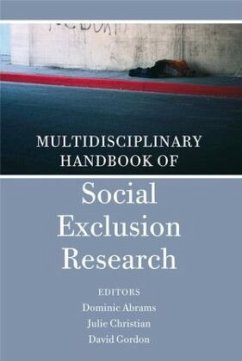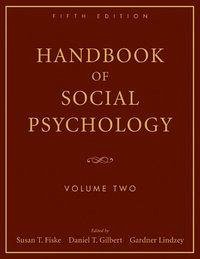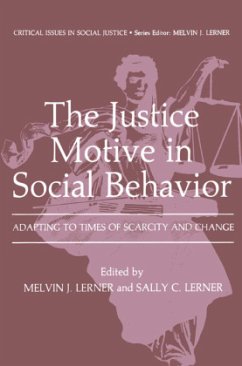
Social Psychology and Discourse
Versandkostenfrei!
Versandfertig in über 4 Wochen
65,99 €
inkl. MwSt.
Weitere Ausgaben:

PAYBACK Punkte
33 °P sammeln!
A unique introduction to social psychology, Social Psychology and Discourse adopts the explanatory framework typical of experimental social psychology textbooks and, using a completely novel approach, applies this framework to discourse analysis in psychology. The contributions of discourse analysis to areas such as the self, relationships, and social cognition - as well as the applied areas of law, health and organisational contexts - are introduced to students unfamiliar with qualitative research.Drawing on a range of examples from UK, European and US research, McKinlay and McVittie provide ...
A unique introduction to social psychology, Social Psychology and Discourse adopts the explanatory framework typical of experimental social psychology textbooks and, using a completely novel approach, applies this framework to discourse analysis in psychology. The contributions of discourse analysis to areas such as the self, relationships, and social cognition - as well as the applied areas of law, health and organisational contexts - are introduced to students unfamiliar with qualitative research.
Drawing on a range of examples from UK, European and US research, McKinlay and McVittie provide key coverage of theory and methodology as well as current debates. Featuring chapter outlines, key terms, a glossary, activity questions, classic studies and further reading, this is an invaluable companion for those studying social psychology, communication studies and discourse analysis.
Drawing on a range of examples from UK, European and US research, McKinlay and McVittie provide key coverage of theory and methodology as well as current debates. Featuring chapter outlines, key terms, a glossary, activity questions, classic studies and further reading, this is an invaluable companion for those studying social psychology, communication studies and discourse analysis.












